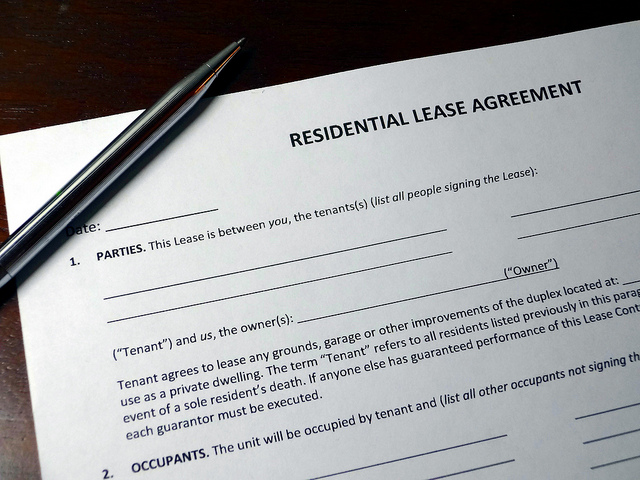rabble is expanding our Parliamentary Bureau and we need your help! Support us on Patreon today!
It was a chilly day in January when Keith Hickey, a journalism student at Carleton University, first lost heat in his shared student apartment. Together with his two roommates, he called his landlord, expecting a quick fix. Instead, the trio received 12 days of delays, unsuccessful fixes, and frigid temperatures that forced them from their home.
“Most of us couldn’t stay in there during that time, but when we were staying there, what we would do is we would study in front of our oven,” he recalls. “We would open our oven up and wear our winter coats and use it as a heater and study in front of it.”
In fact, Hickey’s landlord had committed a string of violations under both provincial and municipal law. From failing to heat the apartment to 20 degrees (a City of Ottawa requirement) to attempting to subdivide the living room without notice (a breach of Ontario’s Residential Tenancies Act), he’d certainly given Hickey reason to contact the Landlord and Tenant Board.
But Hickey didn’t.
“At the time we didn’t take any action or anything because we figured this is just what student living is,” he says. “Like you hear everyone say ‘my landlord stinks’ and stuff like that, and so I sort of assumed that everyone was having experiences like this.”
Student living. It’s a convenient double-standard that allows some landlords to delay maintenance, alter contracts, and otherwise take advantage students’ inexperience. Ottawa is home to a number of repeat offenders who, thanks to poor enforcement and weak penalties, have turned student housing into a convenient cash cow.
“There is an increase in terms of students coming in and dealing with particular landlords,” says Anna Colombo, an Ottawa lawyer who specializes in tenant law. “I would say that in the last three years there’s been a couple of repeat offenders whose names have come up.”
Colombo works at a legal clinic run out of the University of Ottawa and Carleton University. The clinic offers free legal assistance to students and members of the surrounding community.
Young and inexperienced, students are an easy target for landlords looking to cut their maintenance and repair costs. “I have heard landlords say, ‘Oh, well it’s just students living here, so it’s fine,'” says Colombo. “The issue I think is, it isn’t so much a question of student housing, but is the law being violated?”
For short-term renters, legal recourse can be a long, frustrating, and time-consuming exercise. In Ottawa, it can take four-to-six weeks to process an application for the Landlord and Tenant Board, and even longer to gather the necessary evidence and documentation. The whole process can easily take over two months. In Toronto, the wait is closer to five.
Even when a student gets their case before the board, there’s no guarantee that a solution will be found. The board can order a landlord to reimburse a student or make necessary repairs, but it doesn’t hold the power of enforcement. For that, the student must take their landlord to small claims court — another long process, which can be costly.
To Benjamin Reis, a lawyer with the University of Toronto student legal clinic, it’s a flawed system. “Really, penalties need to be more significant,” he says. “Right now I’m not really sure that a landlord has sufficient reason or incentive to inform themselves about the law and abide by it in the first place.”
According to Colombo, penalties for most offenses are small enough that a business-savvy landlord may simply choose to take the risk of arbitration over the definite cost of maintenance. “I can’t say that with certainty, but I’m sure that’s something that crosses their mind,” she says. “I mean, they’re running a business. So part of it will be about operating costs.”
The solution for students isn’t as simple as moving away, either. The case-by-case nature of landlord-tenant conflict ensures that even the worst landlord will never be held accountable to anyone but their tenants. Decisions at the Landlord and Tenant Board are kept confidential, so prospective renters have no means of reading up on their landlord’s track record. Instead, the process is allowed to repeat, with landlords banking on the fact that most students simply won’t take legal action.
That’s why Reis says it’s time for a change in the system. “If everybody’s got the same problem, or a similar problem, then you really have to wonder if asking everyone to discover their rights, learn about their rights, and then assert their rights and litigate is really how it’s supposed to work,” he says.
For Hickey, any changes would come too little too late. Though he’s happy now with his current landlord, he won’t forget the stress and expense of his last apartment in a hurry. “I was never reimbursed for anything. We never made a formal complaint for reimbursement, and I guess we never really thought it was worthwhile. But saying it out loud makes me think ‘dang, I should have been reimbursed for what we were living through.'”
rabble is expanding our Parliamentary Bureau and we need your help! Support us on Patreon today!



